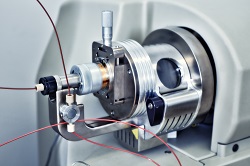Empowerment at the store, at any age
Radio frequency identification (RFID) tags are intelligent bar codes that can talk to a networked system. In a retail environment, the tags gather information about services and advertising. The project 'RFID experience and privacy in the retail environment. Indications for in-store consumer research' (REXPIRE) used social-psychological research in the context of computer technologies in a built-in environment. Examples are the use of RFID and grocery store scanning equipment. The study's purpose was to increase understanding of why some consumers used the retail technologies and others did not. There were three parts to the project. The first reviewed the privacy concerns surrounding RFID services from a social-psychological point of view. The second part included studying retail technologies like self-scanners. The United Kingdom retailer Sainsbury provided a platform for gathering data. Interviews were conducted on attitudes, concerns and perceptions about the device. The third part of the project developed a new application for measuring consumer experience. Data confirmed that adopting technology is empowering. This empowerment effect is tempered by risk awareness, personal experience and familiarity with the technology. If the consumer felt that they were in control of the technology then the technology was deemed good. Younger consumers showed a stronger emotional involvement with the technology while older consumers were less emotionally involved. The younger consumer was happier with the technology and the shopping experience. The older consumer was less likely to use the technology due to not knowing how to use it, claiming privacy concerns. This EU-funded collaboration resulted in a mobile application. The resulting application advances understanding of in-store research methodologies and social science uses in large data systems. Retailers, developers, consumers and all types of professionals can make use of the resulting data.







